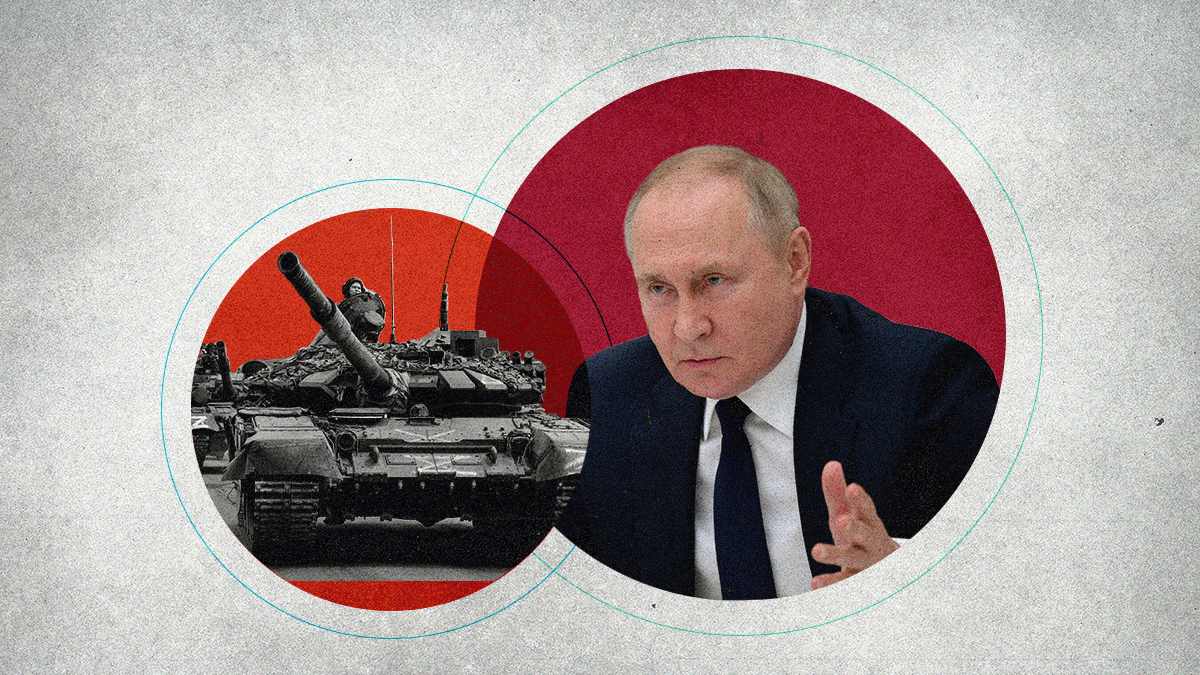When he invaded Ukraine, Russian President Vladimir Putin appeared to believe victory would come quickly. Once he realized he’d miscalculated Russia’s military strength and badly underestimated Ukraine’s ability and willingness to fight, as well as US and European determination to back Kyiv, Putin had to scramble. It hasn’t been easy to maintain the fiction that the fighting would never demand compromise from Russia’s government or sacrifice from Russia’s people.
Half a year later, the war has become a costly stalemate. It has killed more Russians (Ukraine estimates 50,000+) than the Soviet troops killed in a decade of war in Afghanistan, and Russia has neither enough troops nor enough weapons to subdue Ukraine.
In addition, Western sanctions have disrupted Russian supply lines and the Russian arms industry. Newly declassified US intelligence documents claim that Russia is now forced to buy millions of artillery shells and rockets from North Korea, low-tech weapons that Russia can’t quickly manufacture in needed quantities. US intelligence has also reported that some drones Russia bought from Iran have proven defective.
To weaken Western support for Ukraine, Putin has weaponized Russian energy exports to Europe and threatened the free flow of grain from Ukraine amid an international food crisis. Neither move has yet had any impact on US and European policy. And while China remains happy to buy discounted Russian oil Europe no longer wants, it has so far proven unwilling to defy US warnings not to violate weapons and parts sanctions against Moscow.
Ukraine, meanwhile, appears to believe it can win the war and has begun a counter-offensive. Its forces are making “verifiable progress” and have “launched likely opportunistic counterattacks” in the country’s south and “retaken several settlements” from Russian forces, according to the Institute for the Study of War, a Washington-based think tank that monitors military action in Ukraine. Ukrainian partisans have reportedly carried out successful attacks on Russian forces inside Russian-held territory, including Crimea, which has been in Russian hands since 2014.
The big question for Putin: How long can he continue telling the Russian people that Russia is not at war? (Using the word “war” inside Russia to describe military action in Ukraine can still send an offender to prison for 15 years.) More to the point, how long can Putin ignore criticism from hawkish Russian nationalists and their calls to put the country on a war footing that includes a large-scale draft to provide more troops and an admission that tough economic times lie ahead?
The outside world has no evidence that large-scale conscription and other calls for sacrifice would produce public protests that threaten Putin’s future. But his refusal (so far) to take these steps, despite clear evidence that his plans for Ukraine have gone badly off track, suggests he fears the risk of unrest.
In fact, a new study suggests that fear may be well-founded. A report this week from the Carnegie Center for International Peace finds that opinions on the war inside Russia “are becoming polarized” in ways that suggest “growing conflict within Russian society.”
In short, how badly must this war go for Putin to tell Russians that their country is truly at war?
